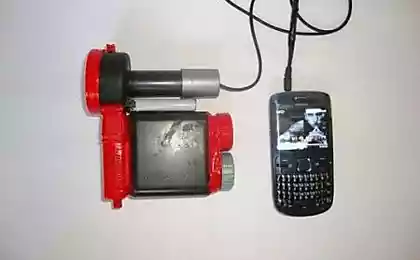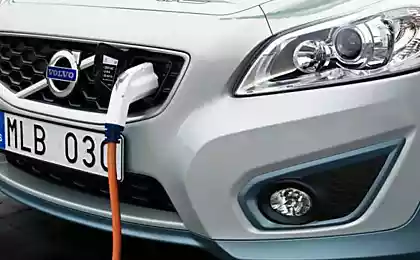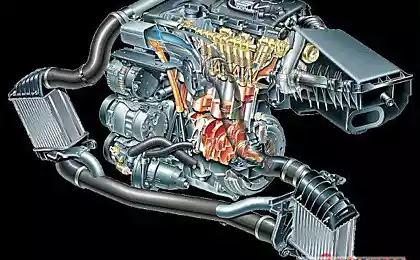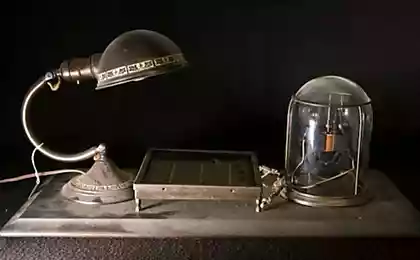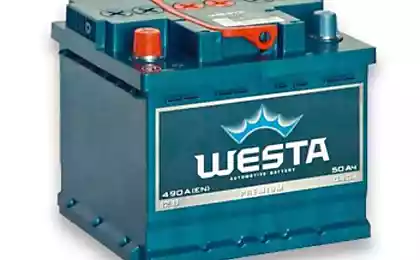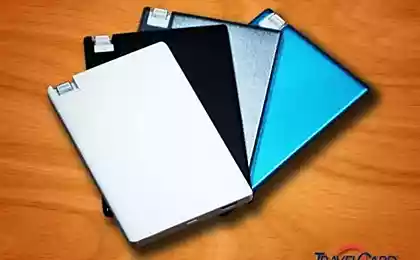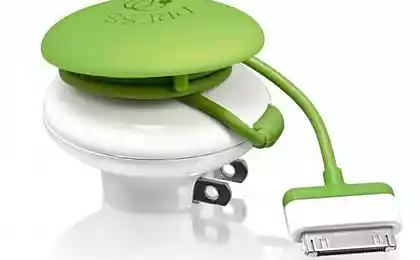479
Mobi is a mobile charger for electric vehicle
The more electric cars sold, the more often the battery is used and the more they begin to accumulate. And today the producers have no ideal choices for this task. The materials are cheap enough, so recycling does not always make economic sense. The batteries are placed in shelves, or worse, go to landfill.
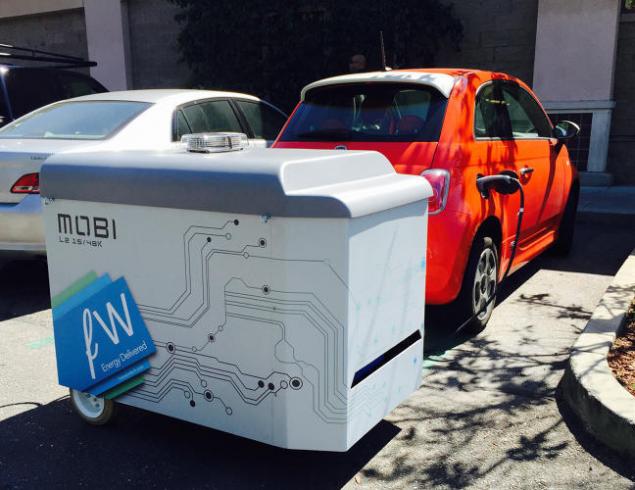
A new startup offers a different use: to use the old battery for mobile charging stations.
A device called Mobi is a small battery charger on wheels running on old batteries from electric cars.
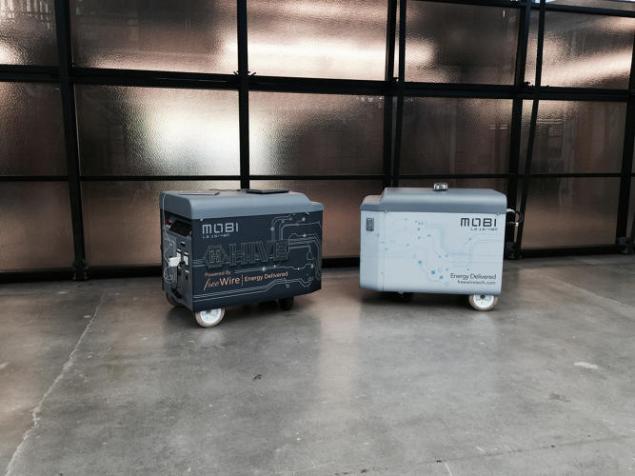
Plug in the electric car or two, and a charger quickly charge.
Because he is still mobile, this also solves the second problem. Instead of driving around in search of charging stations, owners of electric vehicles can use the application and the charger will be delivered to the place of order.
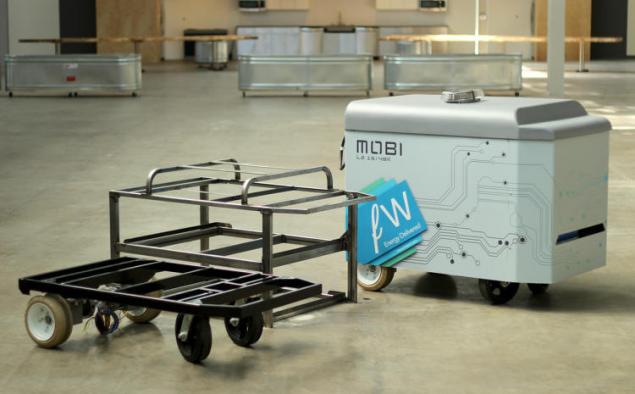
"People usually Park their cars in one place and leave them there all day," says Arkady Sosunov (Arcady Sosinov), CEO of Freewire, the startup, which is Mobi. He spent months studying the problem of the charging car employees for Parking in large companies.
"So, you have this technology that theoretically could serve five or maybe six cars a day, but in this case, you should really efficient to organize the process so people took their cars immediately after charging. It's never that simple".
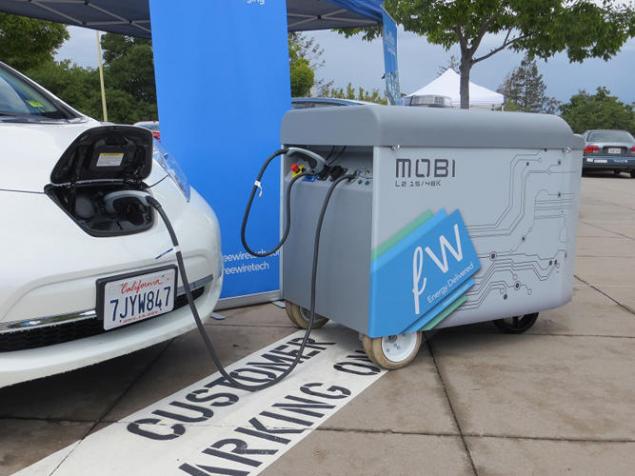
In the headquarters of LinkedIn, for example, each of the installed charging stations at the huge lot the company can charge two cars a day. The company experimented with a request for staff not to forget to clean their cars after charging, but it only ultimately makes people less productive. Freewire has studied the problem and suggested us to test a single method.
"It was an ugly-looking prototype, honestly, just a pile of batteries stacked on top of the wheelchairs," says Sozinov. "But it solved the problem. We sold the idea immediately." Over the past nine months, the company has created the production version of the charger.
The decision to use old batteries from electric vehicles occurred partly by accident. "We are just startup, we are a small company, and we knew that we needed the best technology, but also very cheap," he says. "So, we went to the dump and found the remains of the old Nissan Leaf, pulled the guts out and started working with batteries, just because they were inexpensive. But at the same time, we realized that obviously, this is quite a big headache for manufacturers."
Batteries removed from cars before they are worn out but usually stays around 70-80% capacity for energy storage. Because manufacturers have no good way to use them, Freewire can get the battery to almost nothing.
The whole system is also cheap enough, the company can afford to pay the car Park operator for the charger. They were originally considered an unmanned version of: "we had a sketch similar to the robot from the TV series the Jetsons, Judy," says Sosinov. "And we knew it cheap enough, if we have to work five such devices, the cost of labor will come to naught".
It is also the best approach for companies who want to add more charging stations. Instead of destroying the sidewalk, adding the necessary wiring, they employ the service device Freewire.
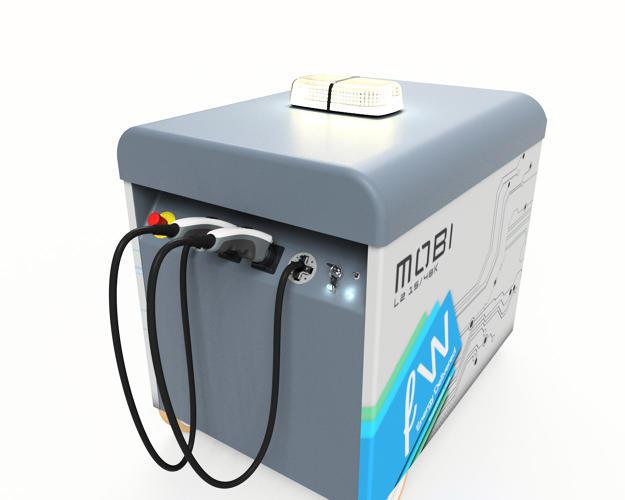
Now, the company starts to expand its system. Soon they will install a few chargers on the campus of Stanford University, sending as necessary the charging station from the Parking lot to the place of order.
Freewire is also a pioneer in another application of the old batteries, installing them instead of the noisy, polluting diesel generators.
When the batteries are deteriorating, the company recycles them by melting the metal part and components as possible are used as raw materials for the production of new batteries.
The young company is becoming popular and has already received calls from a number of companies wishing to provide their batteries. published
P. S. And remember, only by changing their consumption — together we change the world! ©
Source: www.facepla.net/the-news/tech-news-mnu/5163-зарядное-устройство.html

A new startup offers a different use: to use the old battery for mobile charging stations.
A device called Mobi is a small battery charger on wheels running on old batteries from electric cars.

Plug in the electric car or two, and a charger quickly charge.
Because he is still mobile, this also solves the second problem. Instead of driving around in search of charging stations, owners of electric vehicles can use the application and the charger will be delivered to the place of order.

"People usually Park their cars in one place and leave them there all day," says Arkady Sosunov (Arcady Sosinov), CEO of Freewire, the startup, which is Mobi. He spent months studying the problem of the charging car employees for Parking in large companies.
"So, you have this technology that theoretically could serve five or maybe six cars a day, but in this case, you should really efficient to organize the process so people took their cars immediately after charging. It's never that simple".

In the headquarters of LinkedIn, for example, each of the installed charging stations at the huge lot the company can charge two cars a day. The company experimented with a request for staff not to forget to clean their cars after charging, but it only ultimately makes people less productive. Freewire has studied the problem and suggested us to test a single method.
"It was an ugly-looking prototype, honestly, just a pile of batteries stacked on top of the wheelchairs," says Sozinov. "But it solved the problem. We sold the idea immediately." Over the past nine months, the company has created the production version of the charger.
The decision to use old batteries from electric vehicles occurred partly by accident. "We are just startup, we are a small company, and we knew that we needed the best technology, but also very cheap," he says. "So, we went to the dump and found the remains of the old Nissan Leaf, pulled the guts out and started working with batteries, just because they were inexpensive. But at the same time, we realized that obviously, this is quite a big headache for manufacturers."
Batteries removed from cars before they are worn out but usually stays around 70-80% capacity for energy storage. Because manufacturers have no good way to use them, Freewire can get the battery to almost nothing.
The whole system is also cheap enough, the company can afford to pay the car Park operator for the charger. They were originally considered an unmanned version of: "we had a sketch similar to the robot from the TV series the Jetsons, Judy," says Sosinov. "And we knew it cheap enough, if we have to work five such devices, the cost of labor will come to naught".
It is also the best approach for companies who want to add more charging stations. Instead of destroying the sidewalk, adding the necessary wiring, they employ the service device Freewire.

Now, the company starts to expand its system. Soon they will install a few chargers on the campus of Stanford University, sending as necessary the charging station from the Parking lot to the place of order.
Freewire is also a pioneer in another application of the old batteries, installing them instead of the noisy, polluting diesel generators.
When the batteries are deteriorating, the company recycles them by melting the metal part and components as possible are used as raw materials for the production of new batteries.
The young company is becoming popular and has already received calls from a number of companies wishing to provide their batteries. published
P. S. And remember, only by changing their consumption — together we change the world! ©
Source: www.facepla.net/the-news/tech-news-mnu/5163-зарядное-устройство.html




